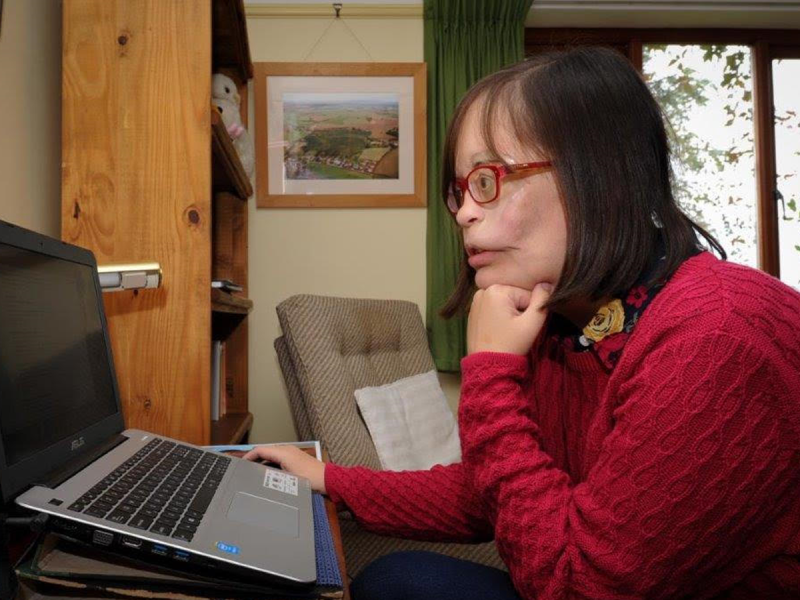Helen’s Story as told by her Mum Pauline
10 December 2019
Helen's Story as told by her Mum Pauline
During the Christmas holidays of 2001/02 I telephoned Helen whilst at work and realised when she answered the phone that she couldn’t talk but grunted. I came home from work to find her disorientated and unable to speak properly so I phoned for an ambulance. It was at the hospital that she was first seen by a consultant paediatrician who, on seeing all her ‘café au lait’ markings wanted to carry out tests. We thought this odd when she had been brought in because she had been unable to speak. He thought she may have Neurofibromatosis because of the café au lait markings but that he would have to have some tests to confirm this. She was just 15 at this time. I had already booked her to see a private Educational Psychologist as her school was concerned about her interaction with other pupils. Whilst waiting for the results from the hospital, the Psychologist confirmed Asperger’s Syndrome.
Once NF1 had been confirmed, and that after two ECGs, one sleep deprived, another confirmation of lesions in her brain caused by the NF, giving her the attributes of Asperger’s as well as Epilepsy. We thought at that time how lucky as a family we were that the only downside of Helens NF was Asperger’s and Epilepsy (the latter has always been controlled by drugs).
During the December two years later in 2003 Helen began to complain of really bad toothache. She had appointments with dentists and the GP, all believing she had an infection. She eventually had a wisdom tooth taken out in January in the hope that this was the end of the toothache. Unfortunately, within 2 days of the tooth being removed, she said she felt something coming through the gap. I knew what it was as soon as I looked and saw the greyish mass coming through. I looked into her eyes and saw a slight difference, knowing again that I was seeing the results of a growth pushing her eye outwards.
During February 2004, we pushed and pushed for Helen to be seen by a consultant at our local hospital in Hereford. We had to persuade her dentist to make an urgent referral because the dentist wasn’t sure what she was looking at, but I knew. When we got to see the Maxilla Facial surgeon he took a biopsy and said that we would have to wait 2 weeks for the results. I work for an NHS trust and I knew the results would be back sooner than that as I could see the tumour growing daily. I took Helen back a week later and wanted to know the results. The consultant could in no way be called empathetic or caring. He told Helen that she would need surgery, she would lose her eye and half of her face, she would need a feeding tube put in straight away and that I shouldn’t be shocked at the news because I had pushed for the results so I must have known all along. He said he would review at his next MDT to decide what course of action should be taken.
I felt it inappropriate to wait until his next MDT as by this time Helen could not close her mouth, the tumour being so large, and her teeth had started to wobble. On top of this the tumour was so vascular in nature if she touched it with her tongue, it started to bleed really badly. On more than one occasion we ended up in A & E so they could try to stop the bleeding. Can you imagine looking at your 17 year old daughter with blood pouring out of her mouth into a bowl? No one, especially a child, should have to go through this.
I contacted the Maxilla Facial unit at the Queen Elizabeth hospital in Birmingham (QE) and begged every secretary I spoke to, to try to get a surgeon to phone me back so I could explain the seriousness of this as every day waiting was just torment.
The week after our initial results, Helen had a peg feed put in which was extremely difficult because they couldn’t get the tube down her throat without touching the tumour and so the bleeding meant Helen felt as though she was choking, lying on her side, trying not to cough. I can still hear her screams of panic.
About a week later we had appointment’s with both a Max Fax surgeon and the head of the young person’s cancer unit at the QE. The first one was at the cancer unit where a lovely, kind empathic and caring man saw the extent of Helen’s tumour and was visibly shocked. He said he would find her a bed as soon as he could but the next day, when we had an appointment with the surgeon, he phoned up to say bring Helen’s clothes as well, she’s staying with us as it was so urgent to start with her treatment.
Again, although the surgeon told us the awful news that had been so cruelly told to us in Hereford, he held Helen’s hands and tried to reassure her that he and his team would do everything that they could to make the best of this terrible situation.
Helen began chemotherapy treatment immediately in the young person’s unit. This was to try to shrink the tumour which was now so large, not only could Helen not close her mouth but she was struggling to swallow, her teeth were very loose and we had real difficulty trying to stop the bleeding.
Each time Helen finished a cycle of Chemotherapy, she stayed in bed at home, having a cocktail of 12 drugs, 4 times daily down the peg feed. All administered very slowly because she felt so sick all the time. She slept quite a lot because of the high dosage of morphine. Usually within 4 days of finishing the Chemotherapy at the QE, she became ill and went back to the QE. She was in the QE for the majority of March, April and May 2004.
When at home, the district nurses would visit as well as our GP. The nurses knew that they had to have a quick game of Connect 4 before they took blood and our GP would come and talk to Helen about their love of music and being in a brass band. Helen played the piano and the trombone in the school band but had to stop when she became ill. It should be noted that our own wonderful GP would come on a Wednesday, his day off, to talk with Helen.
She had her first surgery at the beginning of June 2004. This lasted 9 hours but the surgeon thought it had been successful. When my husband and I visited Helen in ICU, he walked straight past her as he didn’t recognise her face. It was, and still is, completely heart breaking. The ICU doctor wanted to know exactly how much morphine Helen had been taking as he was trying to keep her asleep for 12 hours following her surgery but couldn’t. He could not believe the amount of morphine we told him and realised he would have to give her far more than under normal circumstances as she was now so used to a large amount to keep her pain at bay.
Part of the operation involved taking bone and muscle from a hip to place into the face to replicate the bone and tissue taken away. Unfortunately the blood supply to this failed, and the flap, as it is called, had to be removed. It would be two years before they could try again with her other hip. We were told then that out of the 56 flap operations the QE did in 2004, only 1 failed and that was Helens. They felt she was just too weak to fight any infection but that the 2nd time around she was fitter. During those two years she had a plastic insert in her face (an obturator?) to give it some shape.
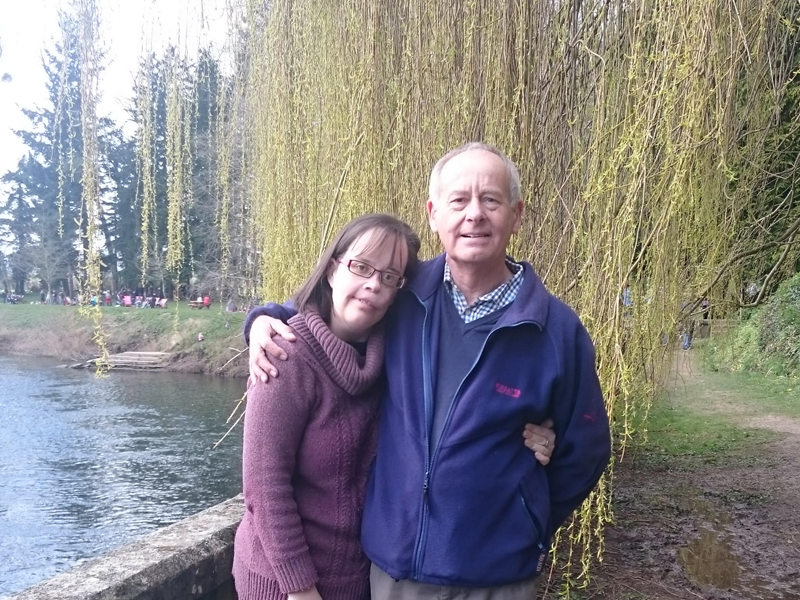
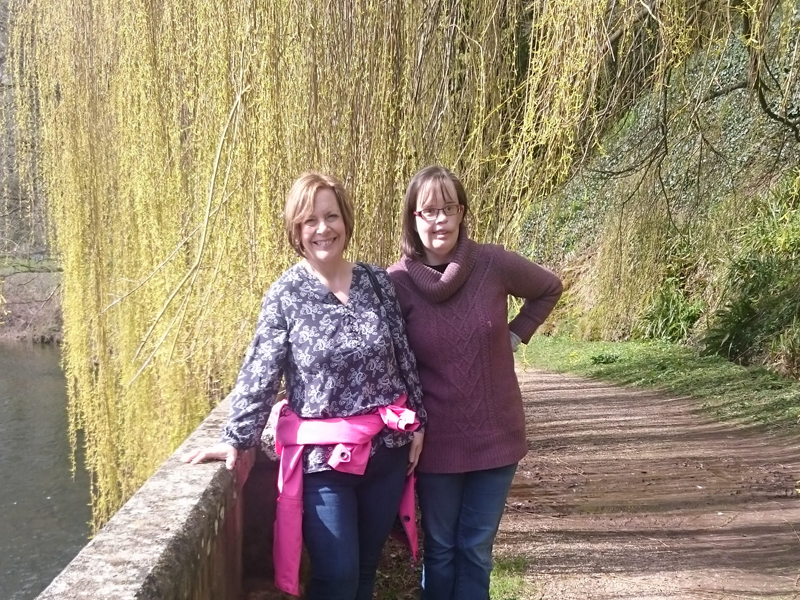
After the first operation, Helen began radiotherapy for 6 weeks at 5 times a week during August and September. My husband and I would take turns in leaving work early to take Helen up to the QE listening to the audio CD of Harry Potter there and back to take her mind off it.
She also went back to school to start 6th form again part time from the October half term until after the Christmas holidays when she went back full time and managed 3 A levels, Physics, Maths and Chemistry and won a place at Birmingham University studying Physics.
Her 3 year degree course took Helen 4 years to complete as she had more and more surgery whilst studying. One surgery, 16 hours long, took skin and muscle from her arm to put into her face, skin from her leg then being placed in her arm. The scar tissue in her face had stretched so tight that she wasn’t able to eat properly and the skin pulled her mouth down to one side. The operation was a success but due to the length of the operation, Helen lost all memory of the few months before and therefore couldn’t remember what she had been doing at University and had to start the year again in the following September.
Helen still has regular appointments at the QE and is due more surgery soon to replace a second titanium pin, one of three that secure her prosthetic eye in place. Unfortunately, the radiotherapy to her face has compromised her bone integrity and two of the pins have fallen out meaning she is unable to use her prosthesis at the moment.
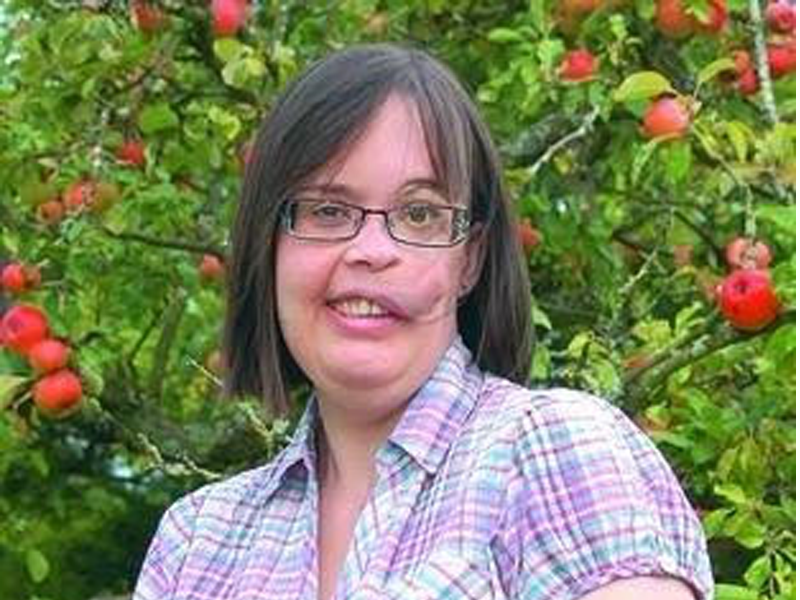
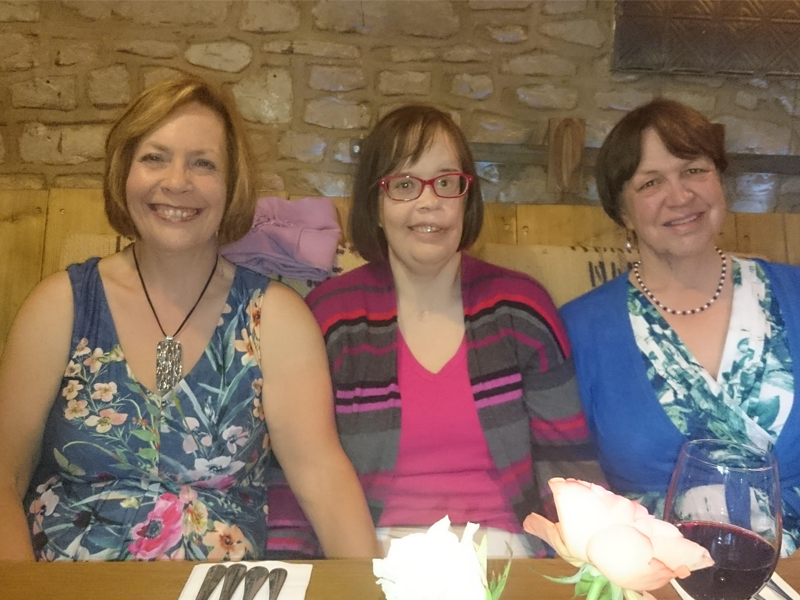
All this reconstructive surgery and the resulting scar tissue has left Helen with the inability to open her mouth very wide, causing problems with eating and in being understood when talking. We have lost count of the number of job interviews Helen has had over the years since she finished University. She got her Physics degree but is unable to find any employment at all, let alone anywhere where her degree would be of use. She tries for everything she can and has worked voluntarily for years in charity shops in the town.
However, no one seems to want to give her a chance. People just see someone who doesn’t look normal and has a speech impediment. If they would get to know her they would realise that she would do anything to help anyone and hopefully be a worthwhile employee. Helen believes that she gets interviews so that boxes can be ticked for Autism and Physical disability (difficulty in walking far due to both hip surgeries) in one go. She just wants to feel wanted and part of something rather than always being rejected without being given a chance.
About 4 years ago Helen moved into a flat in Ross on Wye, 4 miles from home, as we felt she needed to become self-sufficient and able to cope when we are not around. She does everything for herself, drives, joins groups and is well known in the town. Helen isn’t shy about her face. Her attitude is that if people cannot deal with it, it’s really not her problem.
– Pauline"She does everything for herself, drives, joins groups and is well known in the town. Helen isn’t shy about her face. Her attitude is that if people cannot deal with it, it’s really not her problem."
Helen’s first surgeon, Mr. Webster, the maxilla facial consultant, retired last month. We saw him on the very last day he was at the QE and it was like losing a friend, someone who has been with us and supported us from the very beginning. He knew the history, how awful everything has been, how brave Helen is, and we having nothing but praise for him and the staff at the QE. Both he and Helen were quite upset as now Helen has to start to trust someone completely different and new to her.
I’ve worked for the NHS for a long time and so this may sound as though I would have to say how wonderful I think the NHS is but truly, until you, as a family, have gone through what we have and what Helen continues to go thought daily, no one could possibly understand how completely wonderful the staff of the NHS is. Going to the QE regularly is part of Helen’s life and she takes it all very calmly and is now waiting for her new prosthesis so she can get a photo taken to apply for her new passport. She doesn’t want one taken showing just one eye. She’s waited quite a while now because the department is very short staffed. She hasn’t moaned or said one negative comment; she just carries on waiting. For a new prosthesis and a job.
– Pauline"She hasn’t moaned or said one negative comment; she just carries on waiting. "
Filter News
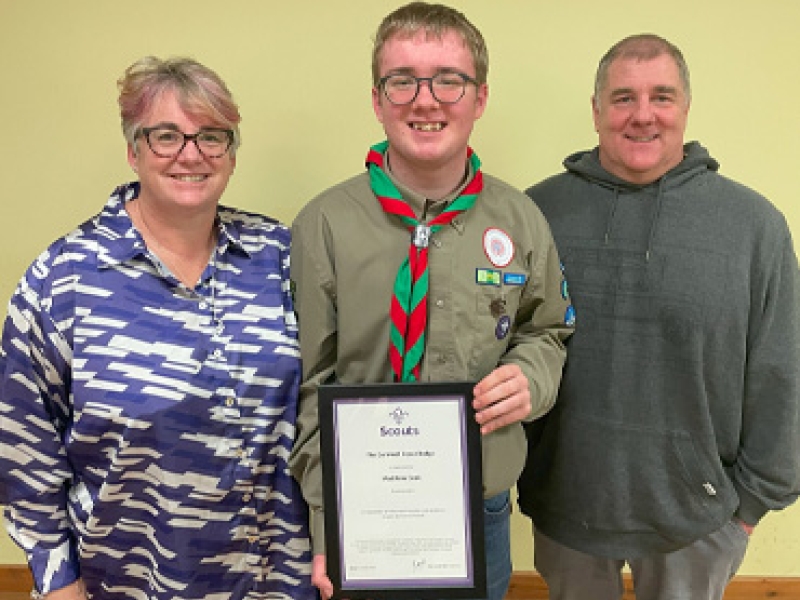
Matthew’s story
Matthew, who has NF2 and is a dedicated Scout, has been awarded the prestigious Cornwell Scout Badge
Read More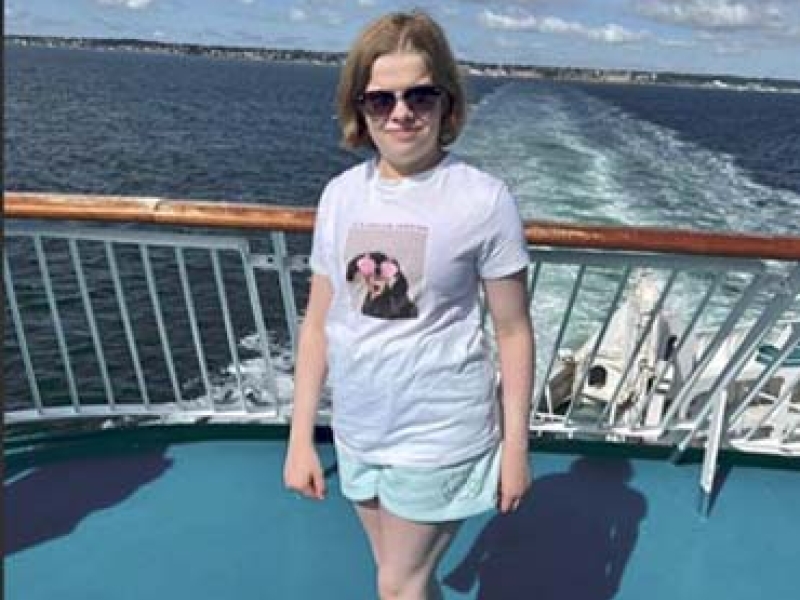
Ella’s editorial
Have a read of Ella's editorial as she shares her brave journey against NF1 with us!
Read More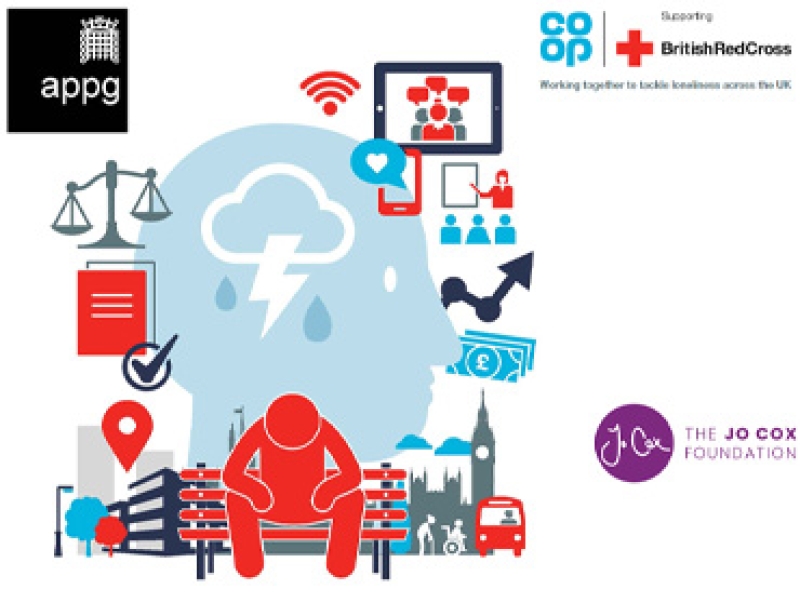
Connected Recovery - Tackling Loneliness
A report from the All-Party Parliamentary Group (APPG) on Tackling Loneliness and Connected Communities
Read More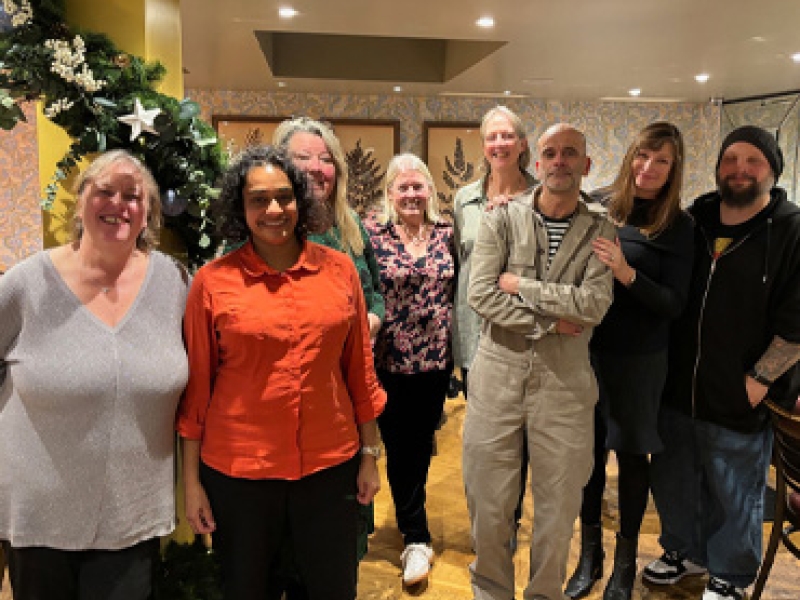
Christmas Message from the Nerve Tumours UK team
Thank you from all of us at Nerve Tumours UK
Read More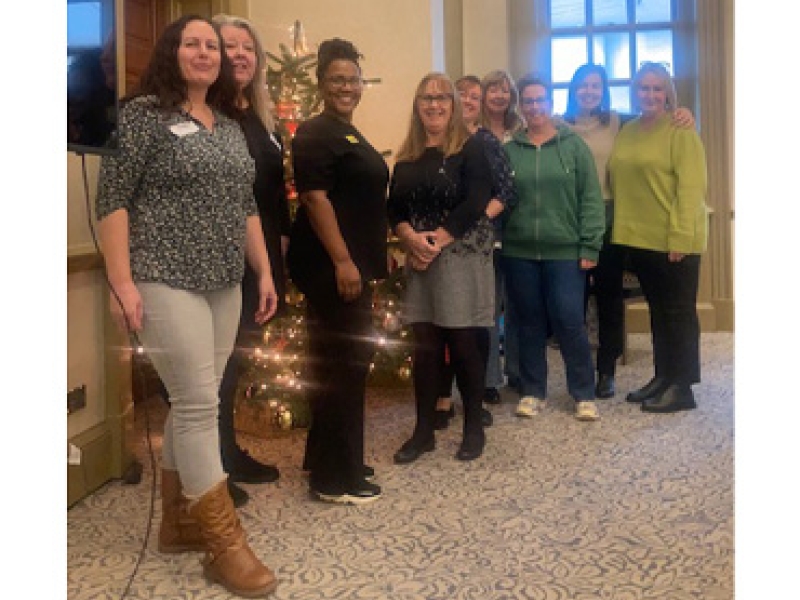
Specialist NF Nurses/ Advisors’ Conference 2023
Find out more about this year's meeting with our Nurses
Read More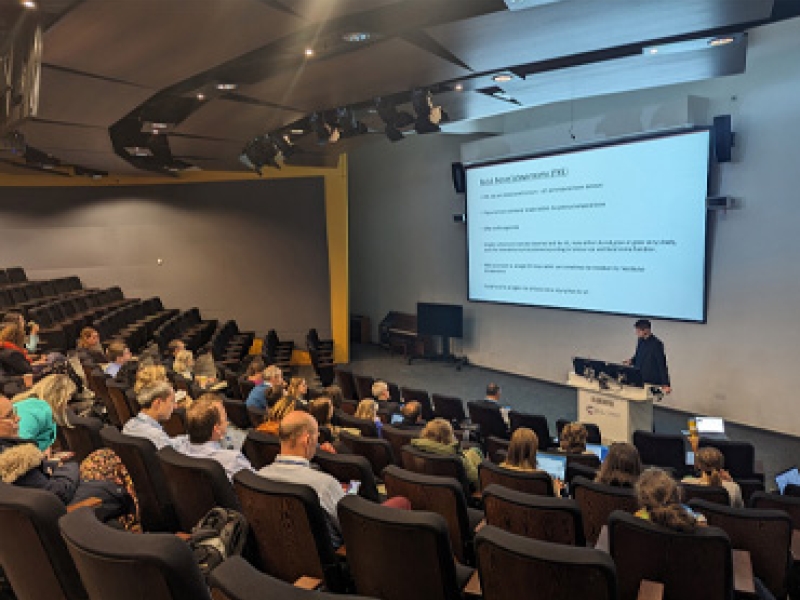
National NF2 Meeting 2023
A report from the 2023 England NF2 meeting, with healthcare professionals & charities working together for the NF2 community
Read More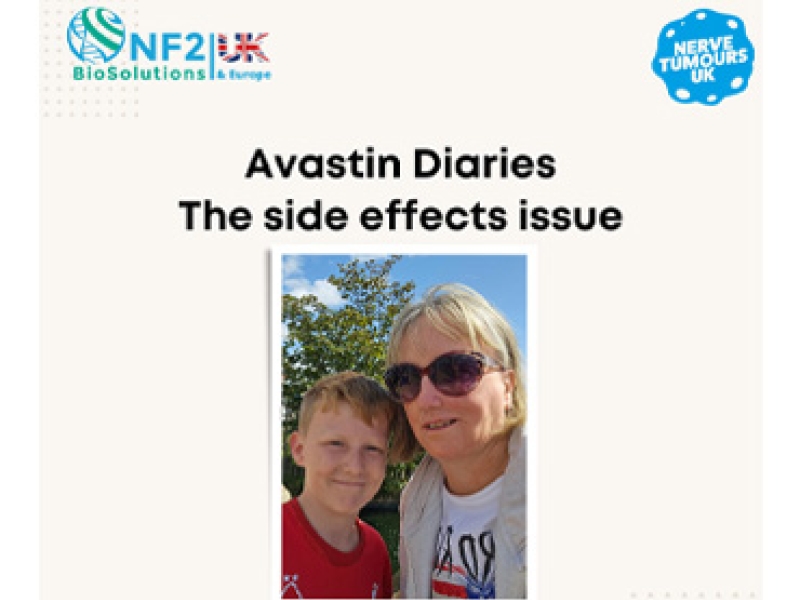
Avastin Side Effects
Jo has collated shared personal experiences, with medical and general advice on Bevacizumab (brand name Avastin)
Read More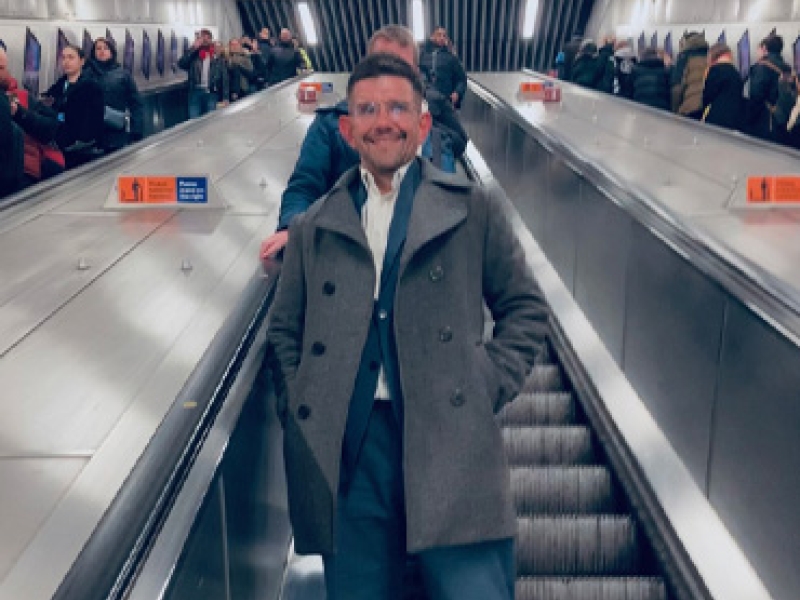
David’s Story - Community and Acceptance
David contacted NTUK after seeing our advertising campaign at King's Cross Station in London last year. Read his story:
Read More
Meet Clare
Clare is a Specialist NF Nurse based at Ryegate Children's Centre at Sheffield Hospital, covering the South Yorkshire region
Read More
